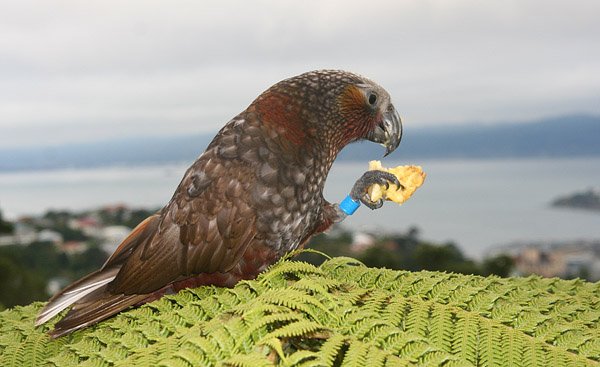
One of the joys of going home to my parent’s house in the UK is the array of bird feeders outside their kitchen. Standing with a mug of tea you can spend ours watching a continuous stream of woodpeckers, sparrows, buntings, finches, robins, thrushes, come and go as they grab beakfulls of seed, nuts, fat and insects. Being the only house in quite a large area gives them a great catchment area to draw birds from, and turns up more than the occasional rarity.
I don’t feed birds much here in New Zealand. We used to put fruit out to attract Kaka, but were (nicely) asked not to by the local conservation bodies as some foods were not good for growing chicks, so obviously we stopped. But it seems that we have other reasons not to feed the birds here as well now. A study, which seems to be making news around the world, has shown that feeding birds in gardens seems to favour non-native species and can lower numbers of native species. Rather than try and summarise I’ll link to the Guardian, which has a much better summary of the paper (it also links to the original paper).
Kaka love apples.
While the study is very interesting, and has implications for us Kiwis in how we stock our gardens, there is a very real danger that more is being read into the paper than it deserves. Take this very, uh, typical headline from that bastion of journalistic bombast, the Daily Mail. How feeding the birds could harm our best-loved species: Leaving bread or nuts in the garden will attract foreign invaders. Leaving aside the jingoism (as one always must with that paper) the important point is that the lessons of New Zealand are not necessarily applicable to the UK, or America, or indeed anywhere other than New Zealand and the other islands of the Pacific. New Zealand has a great deal more introduced species than these other places. It lacks native finches, or even seed eating specialists like finches, sparrows or buntings. There are no woodpeckers. And even when there are vaguely analogous species, like mohoua (which are vaguely like tits) these species are vanishingly rare and seldom stray into cities. The fact is that New Zealand simply doesn’t have many native species to benefit from feeding. Morever, New Zealand’s native species are evolutionarily more vulnerable to introduced species than continental birds in the first place.
The important message from the paper is not that feeding birds will encourage non-native species. Feeding birds in my parent’s garden is helping native species, not exotics. The take home message is that it will favour species that can take advantage of that type of food, and this may affect other species, such as insectivores. Hopefully this is where ecologists will turn their attention to now.


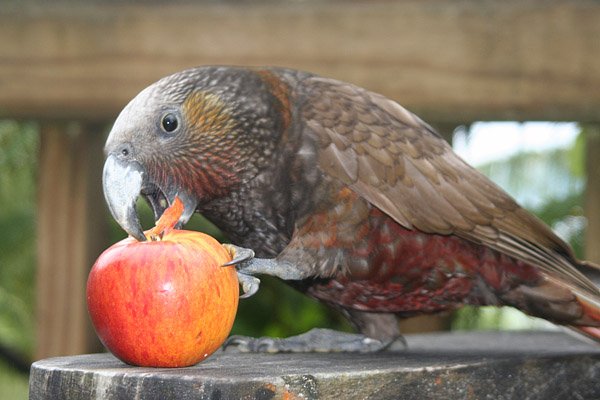

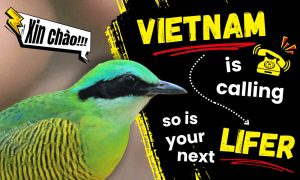



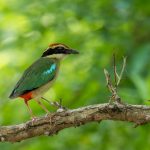

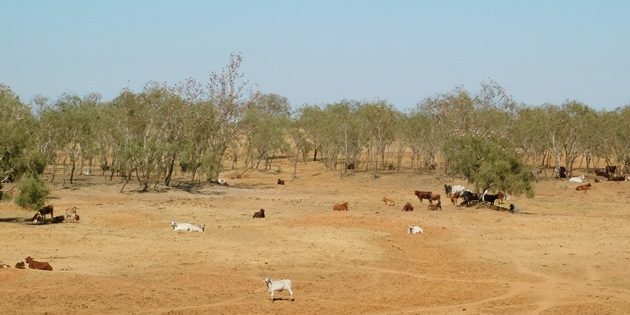
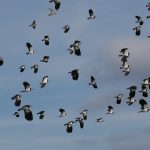
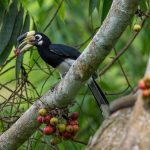
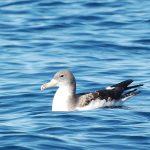
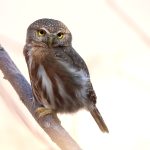
Perhaps this explains why I’ve only found one web-cam in all of NZ, http://www.baggins.co.nz/webcam.php . At which I’ve only seen 4 spp. If there are some I’m missing, I’d sure like to hear of them. If someone cared to remedy this situation I’d be thrilled. Perhaps feeders and a cam could be set up at some state (province? county?) or national park, or private refuge, a la the Sabal Palm cam in the US. Meanwhile, I’m a very frustrated NZ virtual birder.
In my back garden in Auckland birds are around but I think of greater importance is that there is a fall in the insect population. This year 2025 the Monarch butterly has disappeared. Virtually no moths. Hardly any flies. Birds feed on this and no body is talking about it.